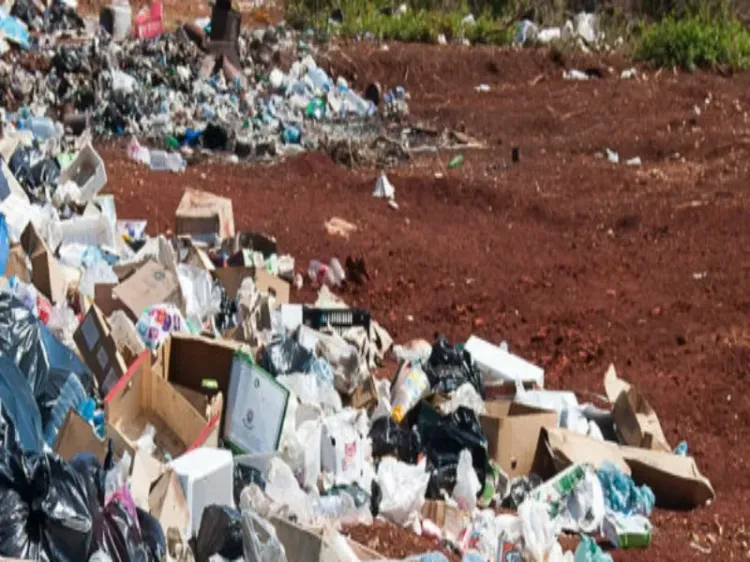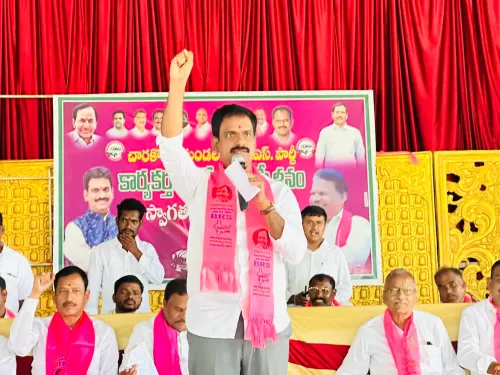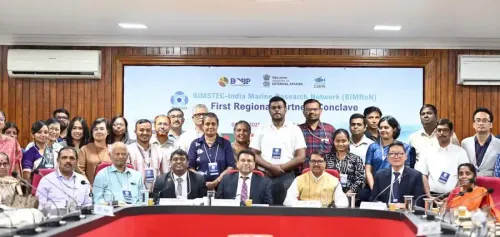CAG Proposes Holistic Approach for Waste Management in Maharashtra

Synopsis
Key Takeaways
- CAG reports reveal 41% waste remains uncollected in Maharashtra.
- 64% of ULBs failed to meet household waste collection benchmarks.
- Significant issues with waste segregation at the source.
- Recommendations for user charges and detailed project reports for ULBs.
- Need for better processing facilities and worker protection.
Mumbai, March 26 (NationPress) The Comptroller and Auditor General of India (CAG) has raised alarms regarding waste management in urban locales, highlighting the inadequate efforts of the Urban Local Bodies (ULBs) in collecting solid waste management charges and taking necessary measures for enhancement. The CAG has urged the state to formulate a holistic policy and strategic approach for solid waste management, with an emphasis on reducing waste generation.
The report indicates that in Maharashtra, the amount of uncollected waste was a staggering 41 percent during the fiscal year 2021-22. Of the 45 ULBs examined, 64 percent failed to meet the service level benchmark for household waste collection.
Further, the audit unveiled significant shortcomings in the segregation of waste at its source.
Construction and demolition debris in the state predominantly remains unprocessed, often ending up in landfills or filling low-lying terrains. Alarmingly, 76 percent of the ULBs surveyed were collecting bio-medical waste from households mixed with regular solid waste. Moreover, in 24 of the 45 ULBs reviewed, e-waste was also found intermixed with solid waste. A notable 25 percent of the waste collected by the 45 ULBs was not processed during 2021-22. Additionally, 26 out of the 45 ULBs lacked developed sanitary landfills, and 13 out of 40 ULBs had no plans for bio-mining or scientific management of open dumpsites. The report also mentioned that a large number of ULBs failed to supply personal protective equipment kits to waste management workers.
The report highlighted that although the state government has issued resolutions and directives for waste segregation at the source, prohibited single-use plastics, and instituted fines for littering, it has yet to develop a comprehensive state policy for solid waste management as called for by the Solid Waste Management Rules (SWM Rules).
Despite all 42 ULBs examined preparing short-term Detailed Project Reports, only 71 percent (30 out of 42) devised long-term plans. The audit revealed inaccuracies in estimating waste generation and the planned processing capacity in these reports.
Delays in formulating bye-laws that incorporate SWM Rules provisions were noted, with 12 out of the 45 ULBs not charging for solid waste management services. Furthermore, 94 percent (33 ULBs) did not meet the target of achieving 90 percent efficiency in the collection of solid waste charges.
The CAG has recommended that the state government instruct ULBs to create comprehensive detailed project reports for effective solid waste management.
Other recommendations include advising ULBs to implement user charges for solid waste management services, reassessing the poor collection performance, ensuring the installation of weighbridges for solid waste measurement, and promoting the formation of Self-Help Groups for waste pickers to enhance their participation in waste management.
Additionally, the report suggests establishing arrangements with Common Bio Medical Waste Treatment Facilities for the proper disposal of biomedical waste.
Lastly, the government should urge ULBs to develop processing facilities for waste management and set up material recovery and secondary storage units promptly, along with creating sanitary landfills for scientifically disposing of waste. ULBs must guarantee that personal protective equipment is provided and utilized by workers handling waste.









